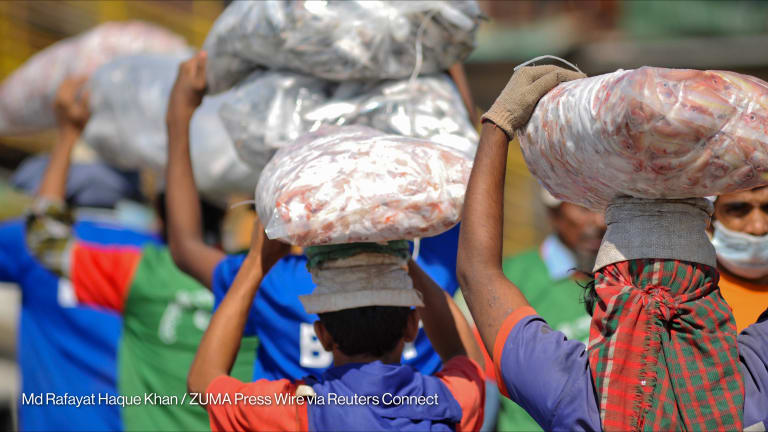
While it’s no surprise to the global development community or the confectionery industry, chocolate lovers around the world may not realize that the cocoa supply chain is facing environmental, societal and economic pressures that threaten the future of one of their favorite indulgences. Worldwide chocolate consumption has doubled in the last 20 years, and the cocoa supply has begun to lag behind demand.
See more #FeedingDev articles:
• Linking up for a food-secure world
• Enterprises designed to serve the smallholder farmer
• How Africa can help feed the world’s 9 billion people in 2050
Between 80 percent and 90 percent of the world’s cocoa is grown on small, family-run farms on a thin belt around the equator, within 15-20 degrees latitude on either side. Cocoa farming requires hard work and skill, as cocoa trees are delicate and susceptible to disease, pests and changing weather patterns. And, as the effects of climate change intensify, cocoa trees may become increasingly vulnerable to periods of drought and excessive rain, which could lead to decreased yields.
As chairman and CEO of Nestlé USA, this situation concerns me. Growing demand for chocolate is great news for our business, but our ability to meet that demand depends on our ability to source a stable supply of high-quality cocoa. And part of that challenge is making cocoa farming an attractive-enough vocation to keep smallholder farmers in the supply chain and to encourage future generations of producers.
Recognizing our role in addressing these challenges, in 2009 Nestlé launched the Nestlé Cocoa Plan, a $120 million investment over 10 years focusing on farm profitability, improving social conditions and a sustainable supply chain.
One important element to securing a more sustainable cocoa supply is empowering cocoa farmers, their families and their communities. Each year, we train approximately 25,000 cocoa farmers on sustainable farming practices, a skillset that enables them to receive a premium price for high-quality, sustainable cocoa. Additionally, we distribute more than 1 million higher-yielding, disease-resistant tree seedlings annually at no cost to the farmers. Globally, we are committed to expanding the volume of sustainable cocoa sourced through the Nestlé Cocoa Plan each year.
Nestlé is firmly committed to eliminating child labor from the cocoa supply chain and expanding access to education in cocoa-farming communities. We were the first food company to partner with the Fair Labor Association to combat labor violations on farms. We’re also working with the International Cocoa Initiative and World Cocoa Foundation to build or refurbish 40 schools in Cote d’Ivoire — where 33 percent of the global cocoa supply is produced — by 2015.
Join the conversation with our LinkedIn group!
I’m proud to say that Nestlé’s commitment to sustainable cocoa is an important initiative for Nestlé USA. We’re already sourcing enough 100-percent UTZ-certified cocoa beans to produce the entire line of Nestlé Crunch everyday bars, our flagship confections brand in the United States. In 2014, we will expand our commitment by sourcing cocoa beans for more of our confectionery business, two varieties of Nestlé Toll House Morsels, Nestlé Hot Cocoa and Nestlé Nesquik Ready-to-drink. Our U.S. goal is to continue to expand the quantity of the cocoa beans we buy each year until we source all of the cocoa beans needed for our entire U.S. business from the Nestlé Cocoa Plan.
Want to learn more? Check out Feeding Development's campaign site and tweet us using #FeedingDev.
Feeding Development is an online conversation hosted by Devex in partnership with ACDI/VOCA, Chemonics, Fintrac, GAIN, Nestlé and Tetra Tech to reimagine solutions for a food-secure future from seed and soil to a healthy meal.








